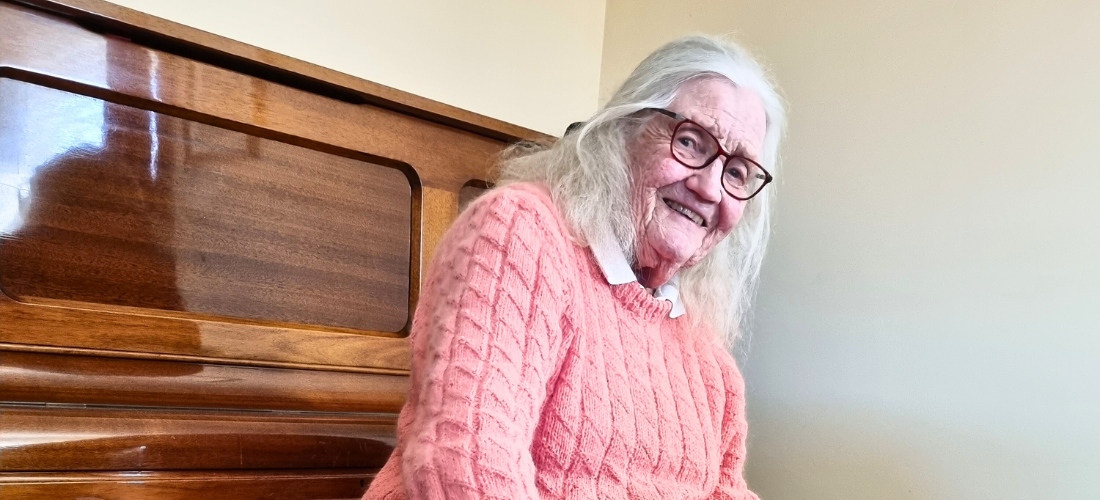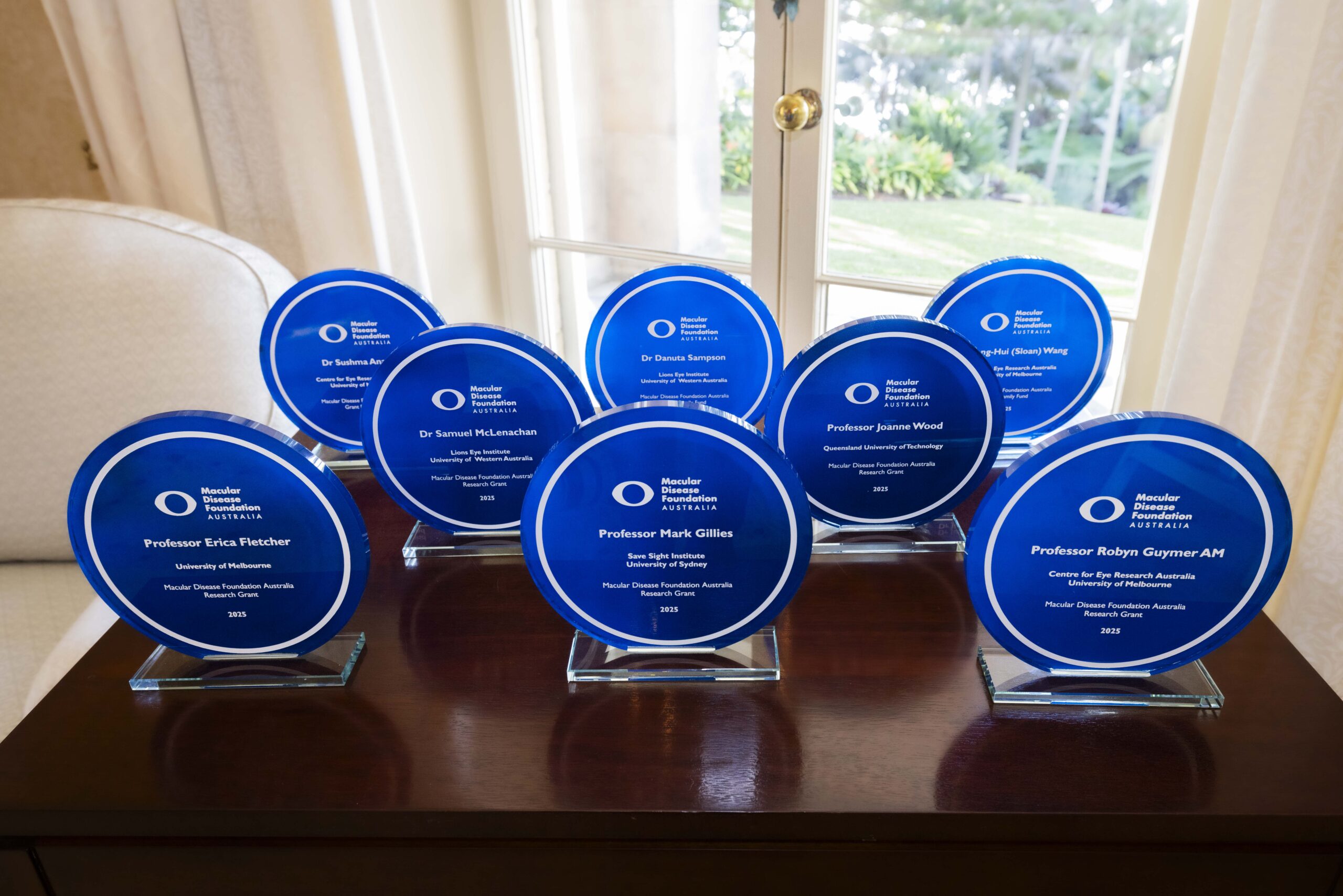The Patient: Helen Siemering
Finding the right ophthalmologist – one who was willing to take time to explain wet AMD and treatment options and who is backed by friendly clinical support staff – has been one of the most important aspects of Helen Siemering’s campaign to save her sight.
As well, Helen, 78, who is pictured above with her grandchildren, said she ensures that compliance with her treatment regime is an “absolute priority… and I could challenge Popeye with eating my greens.”
The strategy is reaping benefits, with Helen’s wet AMD under control 13 years after first being diagnosed with wet AMD in both eyes.
After years of regular injections, Helen is still receiving treatments in her left eye while her right is currently stable and being monitored closely.
From day one, Helen’s ophthalmologist, Dr Alex Harper, in the inner Melbourne suburb of Fitzroy, was “always very helpful”.
“He has been remarkably supportive of me; helping me to understand what was going on. He really takes the time to explain things to me. It is extremely important to find someone you are comfortable with.”
Helen is also full of praise for the “welcoming, friendly, absolutely delightful” clinical support staff who manage her injection regime.
“They do make me feel at ease,” she said.
A family link
The hereditary nature of macular disease is clearly evident in Helen’s family. When her elder sister was diagnosed with wet macular degeneration in 2005, Helen immediately booked in to see a specialist.
“Even though there wasn’t a name put to it, my mother and her sister were officially clinically blind.
“When I was first diagnosed, my husband was with me, and that was enormously helpful, but I immediately thought of my mother.
“I remembered how super she was. She was clinically blind for eight years before she died. She would bath and dress herself. My dad was with her and that was helpful – he had to put the kettle on for her and things like that – but it was absolutely remarkable how she managed. And her attitude – she was never depressed about it. That was an inspiration for me, yes.”
I am enormously grateful for the vision I have.
“I can still drive – I don’t drive in the rain and not at night and not long distances – but I drive locally.
I am so grateful for that, I’m enormously fortunate. I can read, and I can watch TV. I am having a little bit of trouble with text from books. That’s something else that makes me more aware that I have to look towards the aids that are available.”
The Ophthalmologist: Dr Alex Harper
For his part, Dr Harper notes that Helen Siemering is an outlier among patients – not all patients are as well informed about macular disease, or as hungry for information on the latest research.
“She’s extremely well read and comes from a medical background, so she knows a lot. She was well aware of the genetic link to macular degeneration very early in the piece.”
Because treatment of wet AMD required regular appointments over the rest of a patient’s lifetime, Dr Harper said “some patients become your friends over time”.
“We have had a very stable office staff so over the past five to 10 years, they (patients and staff) have all got to know each other.
“But patients vary enormously – some are very keen to talk and we chat about family and home issues. Many times that is very important, particularly if there are competing health needs.
“But others are very business-like and just come in to be seen, then go.”
He says his role is to fully inform all patients about their eye disease, and the treatment options.
But that can often mean very different things to different people – some need time to ask questions, others are happy to be guided by the ophthalmologist as the expert and then there are some that need time to “pause and ponder”.
“It (a diagnosis of AMD) is a big thing to hit someone with, particularly when you are speaking with someone who might have just retired and enjoys something like reading.”
Dr. Harper said new patients with macular disease are given appointments that are twice as long – “sometimes it ends up being more than that even” – to ensure they have the time to discuss treatment options and ask questions.
“With wet AMD we start treatment as soon as possible – on the same day (as the initial appointment). We don’t want patients to have to go away and come back because that all takes time.
“I have to explain the condition and go through the risks and benefits of the treatment options,” Dr Harper said.
He said patients are also given written information to “take home and digest over the following months”.
“Logistically, treating macular disease is a huge commitment and those initial appointments are very important to ensure patients understand and ‘buy into’ the treatment process,” he said.
Dr Harper said while it was important to feel comfortable with your ophthalmologist, he would advise against “shopping around” as continuity of care was extremely important.
Posted: 14 May 2018

















